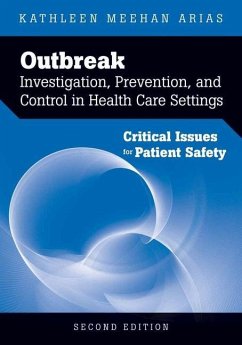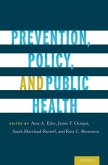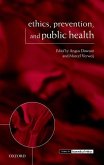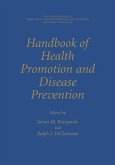In today's era, we are forced to realize that outbreaks can occur at any moment. From anthrax to the avian flu, potential outbreaks can spread rapidly through air, water, and other means. Hospital personnel are now being trained to understand and monitor outbreaks in health care facilities. Professionals both in the private health care sector and the public health system now need to recognize, investigate, control and prevent these outbreaks. Outbreak Investigation, Prevention, and Control in Health Care Settings is a timely resource for health care professionals inside and outside of the hospital covering topics such as: Epidemiology Surveillance Programs in Hospital Settings Organisms and Diseases Associated with Outbreaks Ambulatory Care Acute Care Long-Term Care Pseudo-Outbreaks Investigation Control The Second Edition has been completely updated with current information, tables, statistics and suggested readings.








